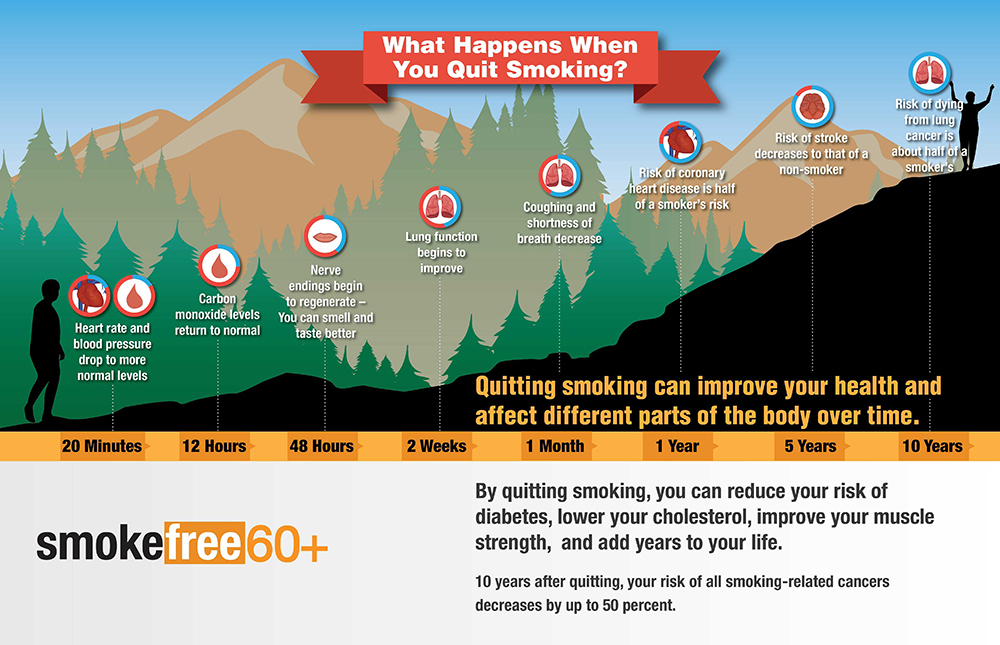
Image courtesy of Smokefree.gov.
Smokefree.gov provides free, accurate, evidence-based information and professional assistance to help support the immediate and long-term needs of people trying to quit smoking.What Happens When You Quit Smoking?
20 Minutes: Heart rate and blood pressure drop to more normal levels.
12 Hours: Carbon monoxide levels return to normal.
48 Hours: Nerve endings begin to regenerate — you can smell and taste better.
2 Weeks: Lung function begins to improve.
1 Month: Coughing and shortness of breath decrease.
1 Year: Risk of coronary heart disease is half of a smoker’s risk.
5 Years: Risk of stroke decreases to that of a non-smoker.
10 Years: Risk of dying from lung cancer is about half of a smoker’s.
By quitting smoking, you can reduce your risk of diabetes, lower your cholesterol, improve your muscle strength, and add years to your life. Ten years after quitting, your risk of all smoking-related cancers decreases by up to 50%.
